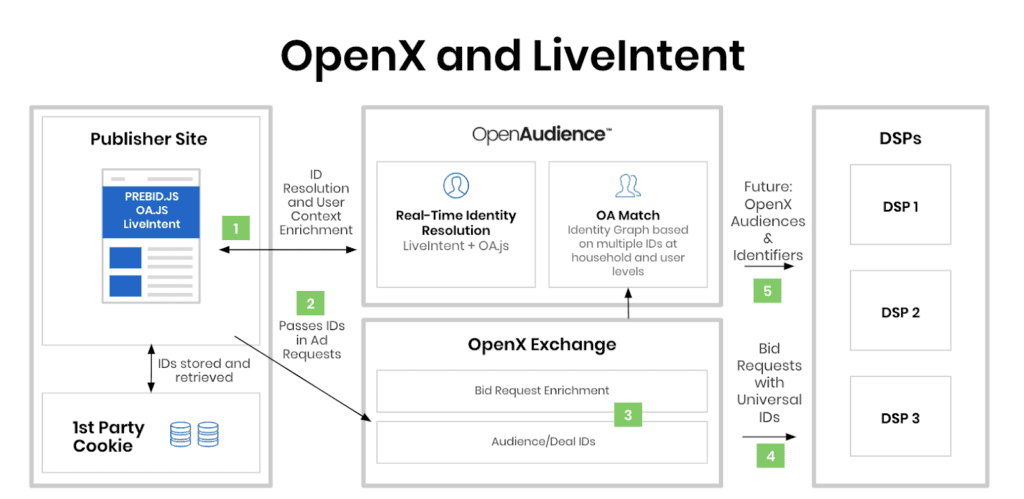
So, publisher—you keep hearing that the demise of the third-party tracking cookie is going to work out in your favor… But how exactly?
Your skepticism is warranted. You’ve been told for years that publisher first-party data is the most valuable thing in digital media, yet even when you served it up on a platter for advertisers, they tended to eschew it in favor of third-party data of questionable quality. Even worse, you were often forced to pony up for said data to ensure you’d meet demographic guarantees.
Just because the third-party cookie is taking a long stroll off the ad-tech stage, you’re not sold that marketers are now miraculously going to open their arms wide to publisher data. And you’re right—executing on publisher first-party data brings forth a lot of challenges. With pub data alone, there’s no standardization in data segments from publisher to publisher; advertisers can’t independently verify the data, and they can’t bring their own data to the party. There’s no bridge to the ecosystem.
It’s not like marketers were in love with the third-party cookie either—marketers have long wanted a better solution, and that’s people-based marketing, Maggie Mesa, VP, Publisher Partnerships, OpenX and Kerel Cooper, SVP, Global Marketing, LiveIntent explained during the former’s spotlight session at the recent Publisher Forum in Santa Monica.
Identity or people-based marketing is not something that was miraculously invented as Chrome announced the dissipation of the third-party cookie—it’s been rigorously developed over years to provide advertisers a cutting-edge consumer messaging mechanism, as well as better connect buyers and sellers via data.
The trouble: scale has long been an issue as people-based marketing is difficult to execute across the open web due to lack of widely available durable identifiers. Durable or persistent IDs are more sustainable than cookies, draw a tighter connection to an individual, and can be roped into an identity’s partner wider identity graph. For publishers, two of the most popular forms of persistent IDs are login data and emails, which are then hashed to ensure privacy.
Ah, I can hear you nodding your head—you’re getting interested now. But what are actionable steps you can take towards jumping on the identity train?
- Strengthen User Relationships and Collect More First-Party Data. We’ve entered the age of consent when it comes to online privacy, and publishers should use this opportunity to not only inform their audiences of data practices but also deepen their relationships. Trading an email for access to content can be very effective—isn’t your audience there for your awesome content in the first place? Team up with product, audience development, and editorial to ensure you’re offering a solid value exchange.
- Make Users Addressable. OK, email procured—now what? Time to team up with identity solutions like LiveIntent and LiveRamp. No exclusivity necessary—every identity solution has its own special sauce, with differing technology execution, data sources (e.g., offline), and unique demand pools. Maximizing the identity opportunity means working with multiple identity partners.
- Understand and Activate. Identity solutions can hook you up to wider data pools, but they can’t monetize your audiences. You need to make sure your SSP and exchange partners have the tools to maximize the revenue input for your IDs. For example, OpenX’s OpenAudience is a JavaScript tag that manages identifiers such as LiveIntent, Tapad, and LiveRamp via first-party cookie or local storage, and then passes that ID through PreBid.js.
The move to identity or people-based marketing is beneficial for both the buy and sell sides. It offers a more reliable tool that facilitates a true data connection between publishers and advertisers. Yes, publisher, the worth of your first-party data is finally going to be recognized—and believe us, it’s never had such a high value.
